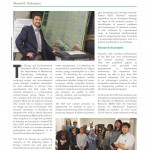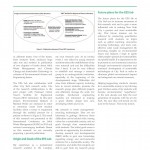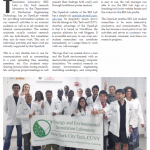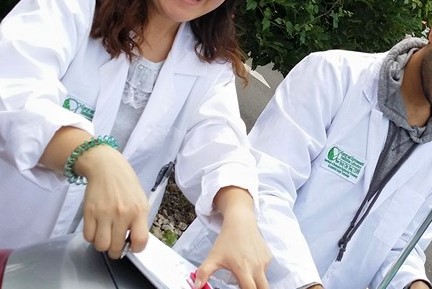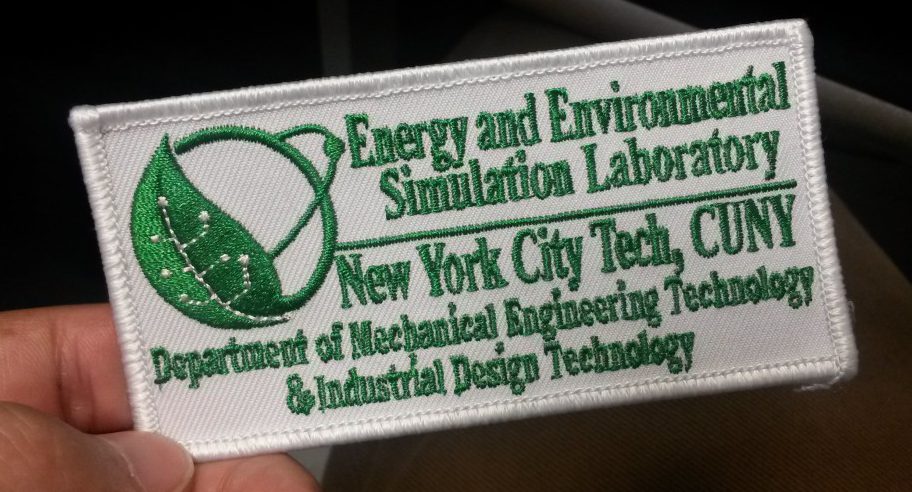Animation created by Yusuf Ahmed
Welcome to Energy and Environmental Simulation Laboratory (EES Lab)
Please read the following articles:
EES Lab’s article in Nucleus, Volume 7 spring/summer 2016
EES Lab’s article in Nucleus, Volume 8 winter 2017
CITY TECH AND CANON PARTNER TO RAISE AWARENESS ON THE PROBLEM OF COUNTERFEIT PRODUCTS http://www1.cuny.edu/mu/forum/2014/05/20/city-tech-and-canon-partner-to-raise-awareness-on-the-problem-of-counterfeit-products/
CITY TECH STUDENTS RECEIVE AMERICAN SOCIETY OF MECHANICAL ENGINEERS RESEARCH SCHOLARSHIPS http://www1.cuny.edu/mu/forum/2014/11/20/city-tech-students-receive-american-society-of-mechanical-engineers-research-scholarships/
————————————————
Dear prospective EES Lab students
Energy and Environmental Simulation (EES) Lab is Professor Masato R. Nakamura’s research group at Mechanical Engineering Department at New York City College of Technology (City Tech), City University of New York (CUNY). This Lab is a research group, not a club, but opens to everyone who would like to conduct research on energy, environmental engineering (including ecodesign), and computing for sustainability. Also, it’s for people who wish to obtain research and development (R&D) skills required in a higher-level position in the industry and academia.
Excellent students can be recommended to become research assistants in order to publish a paper as a co-author, and have an oral presentation in an international conference. These research activities make your resume strong (R&D skills, publication, professional presentation) and will be a huge advantage for finding an engineering position or being accepted (or transfer) to other graduate schools for obtaining a master or doctoral degree.
If you are interested in joining EES Lab, please send Professor Masato R. Nakamura (Tel: 718-260-5532, mnakamura@citytech.cuny.edu ) your resume and answers of following questions:
1) What kinds of research fields are you interested in?
2) How many hours per week can you spend for conducting research?
3) Describe your skills/knowledge of math, physics, computers, and experimental work (lab hands-on skills).
4) After finishing your degree program, what kind of industry or graduate school program you’d like to go?
1. Research Methodology
Students can learn how to conduct research. Research abilities of students can be developed through six steps of the research process:
1) identification of research problems and background,
2) literature review,
3) data collection by experimental work
4) theoretical (mathematical) work by analyzing the data,
5) writing a paper/proceedings/report/poster, and
6) an oral or poster presentation at a conference.
2. Research Fields
EESL focuses on three research fields: 1) energy, 2) environmental engineering, and 3) Computing for Sustainability.
1) Energy: Energy research in EESL includes a wide variety of topics.
Energy Conversion: how to harness energy from natural and renewable resources, topics: Fossil fuel (gas, oil, coal) combustion, Wind, Solar, Wave, Hydro, Biomass (woods, plants), Municipal solid waste (MSW)/energy-from-waste (EfW) or Waste-to-Energy (WTE)
Energy storage: topics: Air compression, Batteries, Flywheel, Others
Energy Transmission: an analytical research (simulation and analysis of data from electric companies or Department of Energy (DOE)), topics: High-voltage direct-current (HVDC), Smart Grid Technology
2) Environmental Engineering:
Recycling technology
Waste management
Air pollutant/Emission control technology
Ecodesign/Sustainable manufacturing
3) Computing for Sustainability:
Eco Design
Sustainable Computer (SC)
Sustainable Information
Volumetric 3D (V3D) system
3. Openlab website
Students have an Openlab web page of each research project required to maintain research contents, update new data, communicate with Prof. Nakamura and other student researchers.
4. CUNY CITI RCR training
CUNY offers the Collaborative Institutional Training Initiative’s (CITI) research compliance courses to fulfill CUNY’s educational requirements. All CUNY faculty members, postdoctoral scholars, graduate and undergraduate students involved in research are required to complete the CITI Responsible Conduct of Research (RCR) training within six weeks of initiating their research. RCR training certificate will be valid for five years. CUNY researchers are required to re-take the CITI RCR training course every five years.
See in detail: http://www.cuny.edu/research/compliance/training-education/citi-training.html
All students and researchers in EES Lab have to complete this training. You will have a certificate when you complete all modules. Could you send pdf of the certificate to Prof. Nakamura ( mnakamura@citytech.cuny.edu )
Please register from here:
https://www.citiprogram.org/Default.asp
5. Application form
Download this application form: EES_Lab_Application_Form
6. Research Plan
Download this Research Plan: EES_Lab_Student_Plan
7. Signup Sheet
Download this Signup Sheet: EES_Lab_Student_Signup_Sheet
8. EESL lab coat
If you need, please order and purchase a lab coat.
- Lab coat (Dickies in Amazon or other low price shops)
In addition to the cost of a lab coat, you can buy an EESL patch ($3) ironed to the coat.
————————————————-
Home > About


